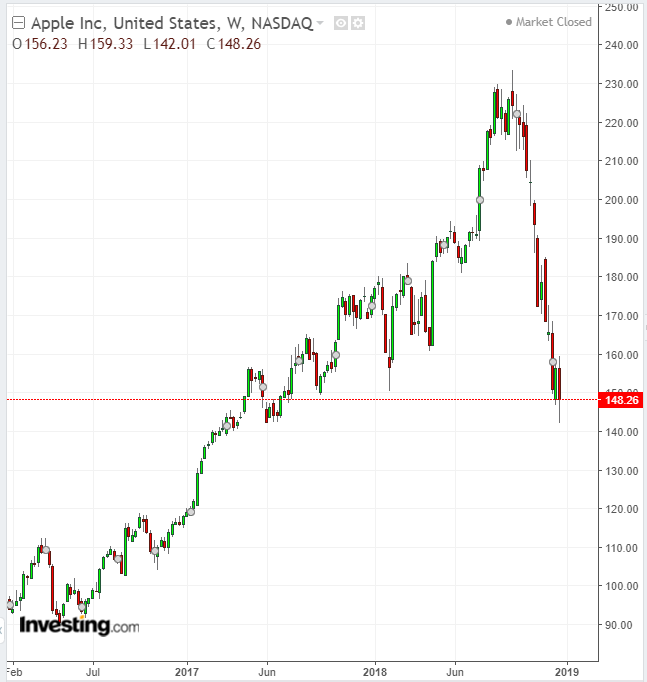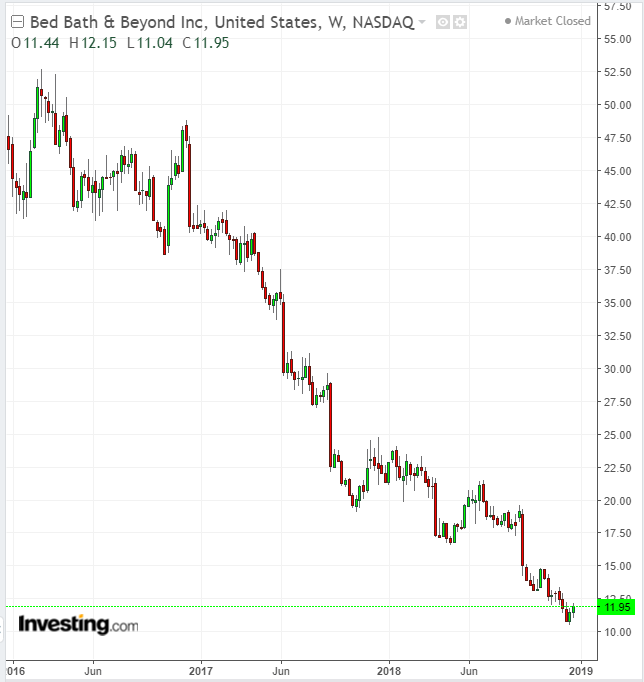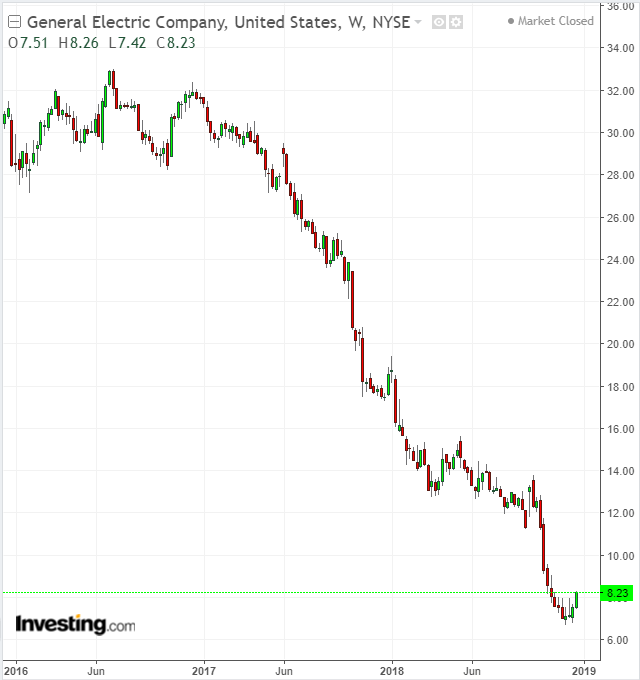The first week of 2019 played out exactly as predicted. Volatility was at its peak and investors didn’t know what to do in this highly uncertain environment.
Major US indices plunged on Thursday after Apple lowered guidance to a more dismal outlook for iPhone sales, citing a slowdown in China. Unfortunately, that was also the day that the ISM manufacturing Index report missed analysts’ expectations, raising fears that the US economy is hitting a slow patch after robust growth.
But Friday was a different day entirely. US stocks rose sharply, bouncing back from their worst two-day start to a year since 2000, after the release of a strong jobs report and signs that the Federal Reserve will be flexible with its interest rate policy. Going forward, we don’t expect the current volatile trading pattern will change.
Investors will buy on good news and sell when the headlines are bad. Here are three high profile stocks that could grab investor attention this week because of company-specific developments:
1. Apple
It definitely has not been a good start to the year for Apple (NASDAQ:AAPL), one of the world’s most highly valued tech giants.

After the stock fell about 7% in 2018, the maker of iPhones began the new year with an almost 10% plunge on Thursday, subsequent to its shocking warning, which reduced fiscal first-quarter guidance, claiming it was due to the effects of a Chinese economic slowdown. Shares are now down more than 39% from the record high set in October.
We expect the stock to rebound and reclaim some of its losses in the coming week if the good news flow continues. The company made a savvy move by releasing its major bad news before its fiscal Q1 earnings report, scheduled for January 29, after the close.
Technicals also suggest that the selloff pressure was more than the stock deserved. After its 39% decline in just three months, Apple's weekly relative strength index chart is the most oversold it has been since the credit crisis, falling to around 30.
2. Bed, Bath & Beyond
If US consumers continued to spend in the final three months of 2018, as reports of the holiday retail season suggest, then we’re going to see some evidence of this strength when the home furnishing giant, Bed Bath & Beyond (NASDAQ:BBBY) reports its fiscal Q3 earnings on Wednesday, January 9, after the market close.

Analysts on average are expecting earnings per share of $0.17 a share on sales of $3.04 billion. That would be a sharp decline from the same period a year ago when the home furnishings and cookware retailer reported $0.44 a share profit.
Bed and Bath is struggling to bring more customers to its stores amid stiff competition from online retailers. Chief Executive Officer Steven Temares has said improvement is needed in its e-commerce function, but the company’s in-store promotions will be the key to keeping shoppers.
During the past quarter, the chain’s comparable sales fell 0.6%, marking a sixth straight quarter of contraction. Bed, Bath & Beyond's shares are down more than 45% during the past one year, adding to the slump that started in early 2015.
3. General Electric
When it comes to General Electric's (NYSE:GE) stock, there isn’t much to cheer about.

The once formidable global industrial conglomerate, and its stock, are struggling to survive after demand for its core products weakened. There don't seem to be any signs of improvement as 2019 begins.
Over the past one year, its shares have lost about 60% of their value. As well, the cash-strapped company almost entirely eliminated its once generous dividend—which now yields just 0.04%. The formerly reliable payouts once attracted millions of income-seeking shareholders.
On the tail-end of this massive selloff, there are signs that the company’s restructuring is slowly moving forward. Friday, Bloomberg reported that Apollo Global Management LLC is talking to bankers about lining up debt to buy all or part of GE’s jet-leasing business, which could be worth as much as $40 billion.
Shares of GE jumped 2% on the news and could continue their upward trajectory this coming week, if the New York-based alternative asset manager confirms the deal. It would raise considerable capital for GE and accelerate the dismantling of GE Capital, the financing arm that once accounted for half of the parent company’s profit.
GE is also taking steps to spin off its health-care unit. The ultimate goal: to narrow its focus to building jet engines and power equipment.
